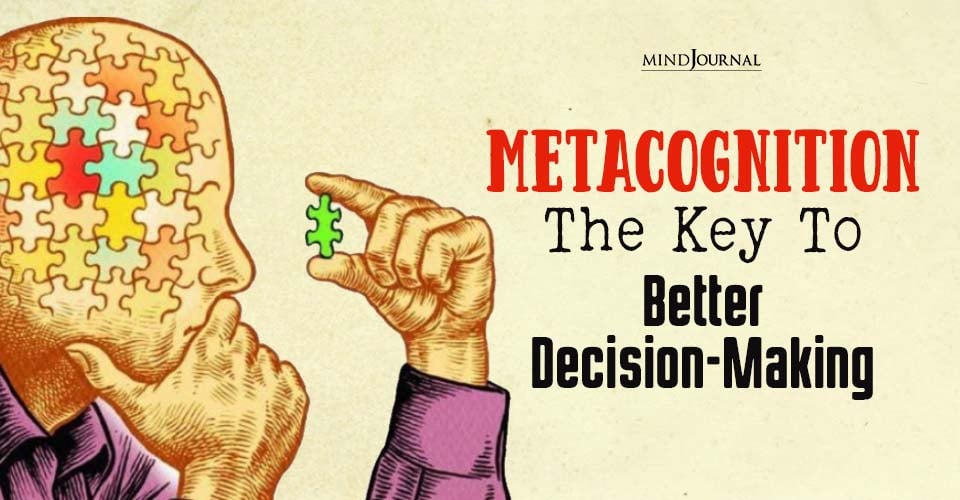Can you easily process new information, analyze situations and deduce solutions to novel problems without getting contradicted by previously acquired knowledge? Then you have fluid intelligence. But in case this is not your greatest strength, then here are a few strategies to improve it.
Intelligence in psychology
Intelligence refers to our ability to gain and implement knowledge, information & skills. It involves various aspects like understanding, critical thinking, reasoning, creativity, logic, problem-solving, learning, emotional intelligence and even self-awareness. All of us are intelligent in our own unique ways. You may be street smart, while someone else can be book smart. But psychologists tend to define the concept of intelligence in different ways.
Our capacity to learn new things and retain previous knowledge and skills is referred to as general intelligence (g factor or psychometric g), which is also known as general mental ability or general cognitive ability. However, during the 1960s, intelligence was segregated in to two major categories by psychologist Raymond Cattell:
- Crystallized intelligence (gc)
- Fluid intelligence (gf)
Crystallized intelligence refers to what you learn and the knowledge you gain from experiences. Fluid intelligence, on the other hand, refers to our intuitive problem-solving abilities.
What is fluid intelligence?
Fluid intelligence (gf) is our ability to use logic and derive solutions by identifying patterns & associations in novel situations. Researchers define it as the ability to reason, create, modify & manipulate various forms of new information in real time. According to a study, fluid intelligence is “our ability to creatively and flexibly grapple with the world in ways that do not explicitly rely on prior learning or knowledge”
Professor and neuroscientist Berit Brogaard D.M.Sci., Ph.D explains “fluid intelligence is the ability to use generalized intellectual skills, such as math, deduction, induction, hypothesis-formation, abstract thinking, analytical skills, pattern recognition, imagination, visualization, and moral intuition to solve new problems.”

Author, world-class endurance athlete and Guinness World Record holder Christopher Bergland explains “Fluid intelligence is the capacity to think logically and solve problems in novel situations, independent of acquired knowledge. Fluid intelligence involves the ability to identify patterns and relationships that underpin novel problems and to extrapolate these findings using logic.”
Read Also: Types of Intelligence
Another study published in the American Psychological Association describes it as “General fluid intelligence (Gf) is the ability used in inductive and deductive reasoning, particularly with novel material.”
In essence, fluid intelligence is our inherent knowledge and understanding that allows us to cope with various situations in life. So can we improve fluid intelligence? Yes. But we cannot enhance this natural ability by learning or practice like we can with crystallized intelligence.
Crystallized intelligence vs Fluid intelligence
Before we can figure out how to improve fluid intelligence, we need to take a closer look at how the two types of intelligence are different and linked with each other. Crystallized intelligence is the knowledge we gain through training while fluid intelligence is our ability to analyze, reason & solve issues. We can use crystallized intelligence in overcoming challenges that require experience and previously gained knowledge like reading and verbal presentations. Fluid intelligence plays a strong role in creativity and innovation and does not require prior experience. It is based on physiological functioning.
Dr. Cynthia Vinney, psychology expert, scholar, author and research fellow at the Institute for Social Innovation explains “Fluid intelligence is the ability to use logic and solve problems in new or novel situations without reference to pre-existing knowledge. Crystallized intelligence is the ability to use knowledge that was previously acquired through education and experience. Fluid intelligence declines with age, while crystallized intelligence is maintained or improved.”
Read Also: Which Intelligence Is Your Most Dominant? – Psychological Test
How these are linked together
“Fluid intelligence along with its counterpart, crystallized intelligence, are both factors of what Cattell referred to as general intelligence,” writes author and educational consultant Kendra Cherry. She explains that both types of intelligence are intertwined and enables us to face and overcome challenges on a daily basis. Kendra adds “Fluid and crystallized intelligence are intertwined. Crystallized intelligence is formed through the investment of fluid intelligence when information is learned.”
When we use fluid intelligence to use logic and analyze different problems, the information gets stored in our long-term memory which eventually transforms into our crystallized intelligence. “Fluid intelligence is often used when learning new things. When you encounter a new subject, you use your fluid intelligence to understand the material through logical and analysis. Once you understand the material, the information will be incorporated into your long-term memory, where it can develop into crystallized knowledge,” adds Dr. Vinney.
Read Also: Research Reveals Intuition Is The Highest Form Of Intelligence
Can we improve fluid intelligence?
Although it was previously believed that fluid intelligence is something that is usually fixed, recent studies have revealed that cognitive training or brain training can help us to increase fluid intelligence in different ways, even in adults of a certain age, says Kendra Cherry. She adds “an analysis of previous studies published in 2014 found that it is possible to improve fluid intelligence with brain training.” We can improve fluid intelligence with training on working memory, which “is a form of short-term memory centered on what you are currently thinking about.”

Dr. Cynthia Vinney explains “Several studies have investigated whether it is possible to improve fluid intelligence.” One of the most prominent research is the 2008 study with working memory which found that fluid intelligence in participants improved after training on working memory. “Their study concluded that fluid intelligence can, in fact, improve through training,” she adds.
How you can improve fluid intelligence
Fluid intelligence is trainable. Lachlan Brown, founder of Hack Spirit explains “Psychologists think that fluid intelligence is handled by the parts of the brain like the anterior cingulate cortex and the dorsolateral prefrontal cortex, which are responsible for attention short-term memory.” So while crystallized intelligence can be enhanced by acquiring new skills and experiences, there are ways to improve fluid intelligence as well.
Read Also: 10 Powerful Habits To Strengthen Your Intelligence
In an article in the Scientific American, behavior therapist Andrea Kuszewski outlines the following 5 ways to maximize your fluid intelligence:
1. Seek new things
Smart people tend to constantly look for new experiences and learn new skills to expand their knowledge. On the contrary, when we follow a routine on a daily basis, our mind goes into an auto-pilot mode which restricts our chances or learning anything new. However, when you actively do and learn new things, your mind expands. Seeking novelty helps us create “new synaptic connections with every new activity you engage in,” explains Andrea Kuszewski. She adds “These connections build on each other, increasing your neural activity, creating more connections to build on other connections – learning is taking place.”
Moreover, new experiences release dopamine which stimulates neurogenesis, makes you feel motivated and enables our brain to learn new things. Moreover, novelty also helps in increasing synaptic plasticity. All you have to do is constantly pursue new adventures. Kuszewski adds “Always look to new activities to engage your mind – expand your cognitive horizons. Learn an instrument. Take an art class. Go to a museum. Read about a new area of science. Be a knowledge junkie.”
2. Face more challenges
Like we challenge our muscles at the gym for it to grow, we need to challenge our brain for necessary improvements. When we learn to challenge our brains continually, the brain learns to function at an increasingly higher degree. According to Kuszewski, a 2007 study analyzed participants while they played the video game Tetris, which was a novel experience for them. After playing the game for several weeks, it was found that the participants had increased cortical thickness and better cortical activity simply by playing the new game Tetris.
Kuszewski writes “Basically, the brain used more energy during those training times, and bulked up in thickness – which means more neural connections, or new learned expertise – after this intense training.”
However, as the participants gained expertise in playing the game, a reduction in cortical thickness and activity was noticed by the researchers. “Once their brain figured out how to play Tetris, and got really good at it, it got lazy,” adds Andrea Kuszewski. If you want to improve fluid intelligence, then efficiency is not going to be helpful. You need to constantly challenge your brain to keep it active and enable it to make new connections. Kuszewski writes “You want to be in a constant state of slight discomfort, struggling to barely achieve whatever it is you are trying to do. This keeps your brain on its toes.”
Read Also: 9 Genuine Signs of Intelligence That People Can’t Fake – How Many Do You Possess?
3. Think creatively
If you want to improve fluid intelligence, then you need to learn how to think more creatively. This does not mean that you start painting a masterpiece. It simply means that you utilize all aspects of your brain instead of just being analytical. Kuszewski says “Creative cognition involves divergent thinking (a wide range of topics/subjects), making remote associations between ideas, switching back and forth between conventional and unconventional thinking (cognitive flexibility), and generating original, novel ideas that are also appropriate to the activity you are doing.”
A study titled The Rainbow Project found that students taught with creative methods achieved higher grades in a course than students taught using traditional methods. When we think differently and go beyond our normal sphere of thinking, we empower our brain to be more active than we do otherwise. Lachlan Brown explains “This increases our ability to generate original ideas and develop new and unconventional thoughts.”
4. Take the hard way out
Today technology is focused on making our lives a lot more comfortable and efficient. However, this prevents us from seeking new experiences and facing more challenges as we settle in our comfort zones. Modern technology allows us to accomplish a lot more than we can in a short period of time using minimal mental or physical energy. But this can be detrimental for our brain.
“Technology does a lot to make things in life easier, faster, more efficient, but sometimes our cognitive skills can suffer as a result of these shortcuts, and hurt us in the long run,” says American cognitive scientist Andrea Kuszewski. Just like our bodies, our brain needs exercises or our brain muscles will atrophy. When we rely too much on technology and don’t use our cognitive skills, spatial skills and problem-solving skills, our brain starts to lose its power.

Simple tools like translation software, spell-check and auto-correct can affect our cognitive abilities. Kuszewski adds “I think autocorrect was one of the worst things ever invented for the advancement of cognition. You know the computer will catch your mistakes, so you plug along, not even thinking about how to spell any more.” So if you can afford spending the time and energy, it is best to avoid certain unnecessary shortcuts and let your brain do the hard work. It will keep your mind in good shape.
Read Also: IQ: It’s Your Learning Potential, Not Your Intelligence
5. Be more social
Networking and socializing is another great way to improve fluid intelligence. When you spend more time with others, you open your mind to new environments, opportunities, perspectives and ideas. Socializing compels you to remember details about others that would seem irrelevant otherwise. Being with others also allows you to gain new insight and perspectives on life which leads to new neural connections and learning.
Kuszewski writes “By exposing yourself to new people, ideas, and environments, you are opening yourself up to new opportunities for cognitive growth.” She adds “Learning is all about exposing yourself to new things and taking in that information in ways that are meaningful and unique – networking with other people is a great way to make that happen.”
According to a 2008 study, social integration can delay memory loss and protect against various cognitive disorders in elderly adults. The study revealed that “high levels of social integration predicted a slower rate of memory decline in a nationally representative sample of US residents 50 years and older who were followed prospectively for 6 years.” Another study found that cognitively stimulating social activities may be beneficial for cognitive functions in the elderly and reduce the rate of cognitive decline. The paper concluded “Our research suggests that an effective way to maintain cognitive abilities at advanced ages may be to improve community facilities.” Spending time with other people can open new possibilities and challenges that your brain can work with.
Upgrade & improve fluid intelligence
Our mind is a mysterious place and scientists are gradually uncovering unexplored areas of the self. Intelligence has different forms and may manifested in unexpected ways through daily obstacles and opportunities. Although fluid intelligence is relatively more complicated to enhance, you can improve fluid intelligence by boosting your cognitive skills and memory.

Kuszewski concludes that intelligence is not about how educated you are, instead it is “about being able to approach a new problem, recognize its important components, and solve it – then take that knowledge gained and put it towards solving the next, more complex problem. It’s about innovation and imagination, and about being able to put that to use to make the world a better place.”
Read Also: Enhancing Your Intelligence
Here is an interesting video that you may find helpful:











Leave a Reply